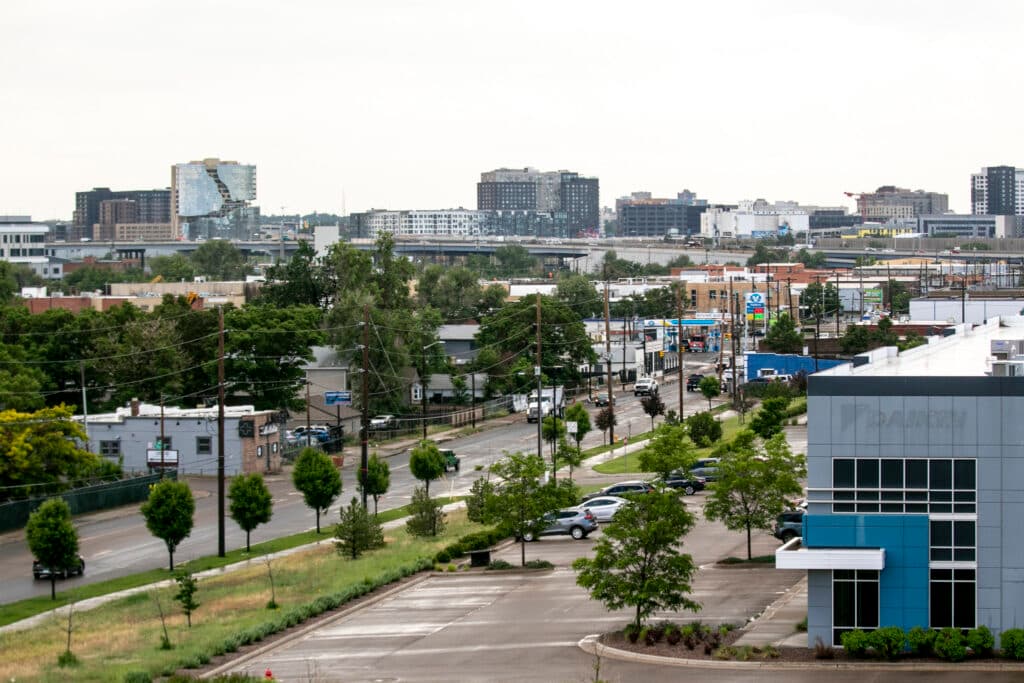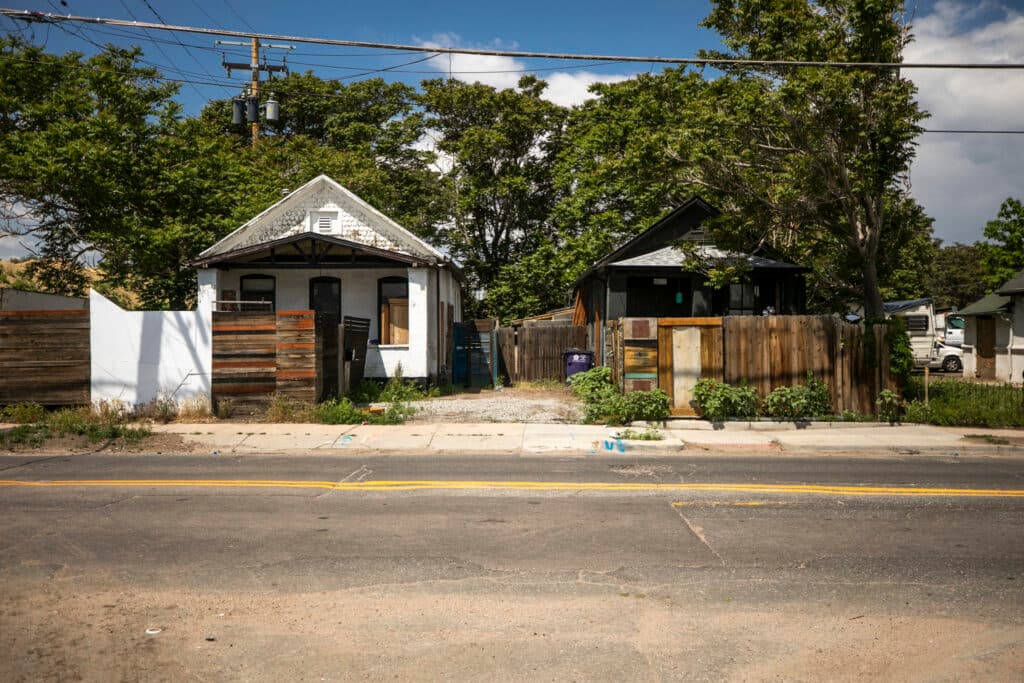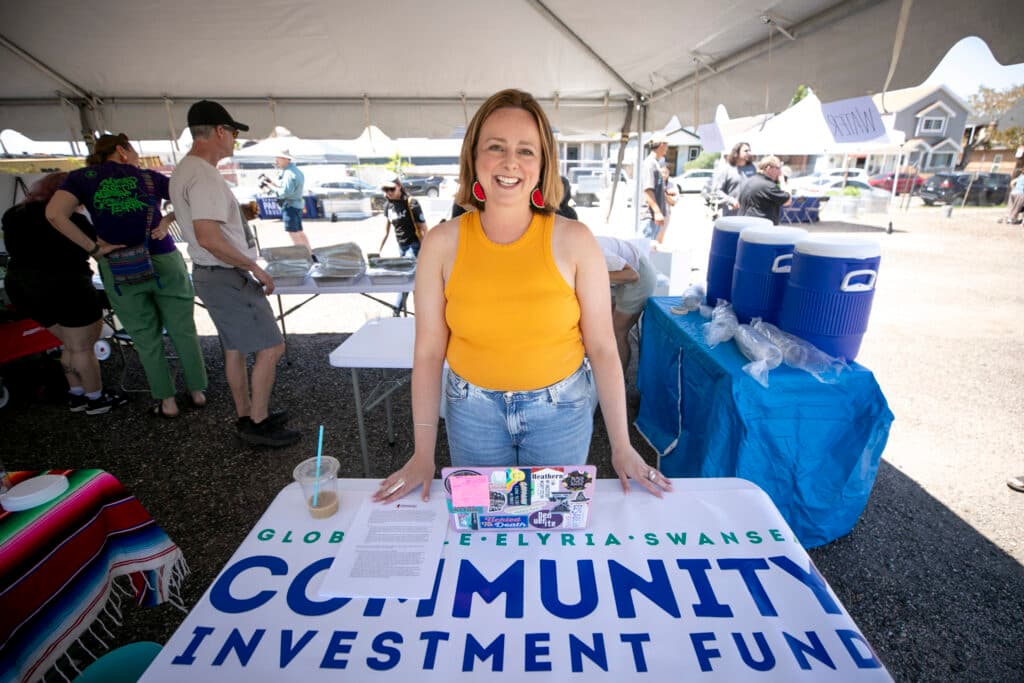A pool of tourism dollars meant to protect north Denver residents from displacement paid out its second round of grants last month.
The Globeville Elyria Swansea Community Investment Fund (CIF) distributed between $3,000 and $8,000 each to 18 local projects. It’s the beginning of a 35-year commitment by city leaders and the National Western Center Authority to share the wealth with residents as the long-neglected neighborhoods undergo a generational transformation.
There’s a sense that these projects are needed by a community long stressed by insecure economics and an unhealthy environment. Still, people involved say the grants are not nearly enough to ease all the pressure neighbors are under.
This round funded environmental upgrades, meal programs and art.
Shannon Hoffman, manager of the CIF, said the program had $90,000 to dole out this cycle. The CIF is required to spend money it accrues, mostly from “round ups” on sales at the National Western Center, within one year of its collection.
In the first cycle, the program distributed $86,000 to ten organizations, with most getting $10,000 each. This year, Hoffman said, CIF’s board decided to fund more projects with smaller individual grants.

Two organizations were awarded $8,000 this year: A “healing summit” and community festival by the indigenous cultural group Kalpulli ColorAztlan Quetzalcoatl; and an “abolition garden” by the Rootwork Youth Program, which engages kids with outdoor projects.
Birdseed Collective received $7,000 for its ongoing work as a food pantry. $5,000 was awarded to a green infrastructure project by the Green Dot Coalition, which lost grants when President Trump’s administration clawed back money for environmental justice.
Money also went to a stress relief workshop, yoga classes, two community storytelling projects, a culinary workshop, a park-improvement committee, a bike repair program and more.
Not everyone is happy about how the money was spent.
Longtime Globeville advocate Armando Payan was disappointed by the CIF’s second round.
He said he was approved for $20 million in EPA grants to help weatherize and electrify homes, build vegetable beds and support renting residents who hoped to achieve homeownership.
Then, Trump’s administration reneged on funding for environmental justice projects and dashed his plans.
So Payan tried to reconfigure his proposals for the CIF’s application process. Each of them were ultimately denied.

As a result, Payan said he’s worried the CIF is not being held accountable to its stated goals. He was also concerned that the program might lack the rigorous evaluations to ensure projects really impact the neighborhoods' pressing problems.
The eclectic mix of initiatives funded this cycle doesn’t feel as impactful as it could be, Payan said. He’d prefer that the money for storytelling and mental health was given instead to pointed solutions for environmental dangers and displacement.
“The mission here should be really clear,” he said. “If you’re not doing nothing to enhance the quality of life, you’re not doing something of service.”
Organizers agree, but money is tight and not guaranteed.
The CIF is currently funded at a rate equal to 1 percent of all public dollars spent on a renovation of the National Western Center, an estimated $9 million to trickle out over 35 years.
But that money isn’t necessarily guaranteed. The “round up” relies on customers to opt into small donations when they buy concessions and merch. Hotel fees earmarked for the CIF rely on people actually booking rooms.
A few months ago, Denver City Council held up $800 million in funding for renovations at National Western. It was an opportunity for residents and advocates to air grievances about how community benefits are funded.
Hoffman and CIF supporters said the current arrangement will not provide enough money, in a quick enough timeframe, to address the neighborhoods’ biggest problems. They asked for $16 million up front.

City legislators eventually sanctioned the payout to the National Western Center and did not approve the CIF’s request for a better deal.
Hoffman said she shares Payan’s frustration that the CIF is unable to back giant solutions to giant problems. The current funding model, she said, only makes sense for smaller projects.
“In some ways, he is correct, but that is not due to the nature of the projects. That is due to the nature of the funding that we have. We cannot resolve displacement, gentrification, the issue of the food deserts, the issue of people being able to hang onto their small businesses in their community, with $90,000 a year,” she said. “$90,000 will not buy us one house.”
‘We’re still standing tall’
Still, CIF grant recipients say even these smaller, less obvious projects are important to a community under duress.
Emilia Cano is an organizer with Kalpulli ColorAztlan Quetzalcoatl, which is using their $8,000 for a wellness festival in a local park that will be called Xocotlhuetzi Pahtia —"Falling of the Fruit." She said community resilience is built on basic mental, physical and spiritual health. Working on that will still have a meaningful, if not obvious, impact.
“The whole goal of it is to keep the community together,” she said. “This is one way towards that. Even one day a year … that’s something. Our voices are still loud, and we’re still standing tall.”
Correction: This story has been updated to correct the spelling of Emilia Cano's name, as well as the name of her organization, Kalpulli ColorAztlan Quetzalcoatl.













